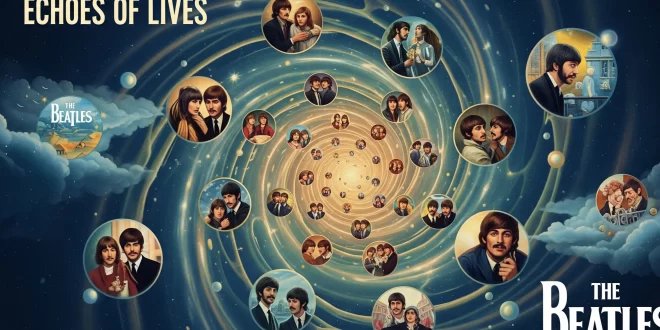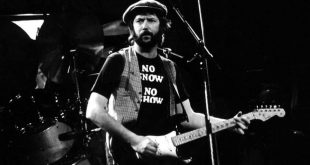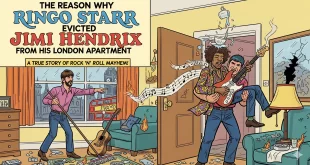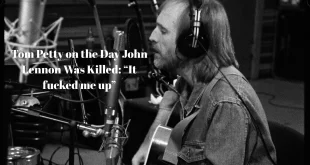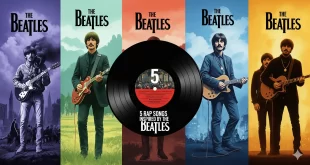The Beatles aren’t just a band; they are a cultural phenomenon whose music has transcended generations. One of the most fascinating aspects of The Beatles’ legacy is how deeply personal their lyrics often were. From love and loss to political tension and spiritual searching, their songs reveal far more than catchy melodies — they offer a glimpse into the hearts and minds of John Lennon, Paul McCartney, George Harrison, and Ringo Starr.
In this article, we’ll explore how The Beatles’ lyrics reflect their personal experiences, emotional journeys, and life changes. From the innocent charm of early hits to the profound introspection of their later work, their evolution as artists was undeniably shaped by their own lives.
1. The Early Years: Youth, Romance, and Fame
In the early 1960s, The Beatles exploded onto the scene with upbeat songs about young love and infatuation. Hits like “I Want to Hold Your Hand,” “She Loves You,” and “All My Loving” captured the innocent, optimistic spirit of teenage romance.
But these weren’t just love songs. They reflected the band members’ own experiences with fame, relationships, and the excitement of being in their early twenties. Paul McCartney once said that many of their early songs were based on imagined situations, but they often stemmed from real-life crushes, breakups, or dreams.
Example:
“All My Loving” was written by Paul while he was on tour and missing his girlfriend. The lyrics — “I’ll send all my loving to you” — were a heartfelt note from a young man torn between love and the demands of fame.
2. The Middle Period: Struggles, Drugs, and Experimentation
By 1965–1967, The Beatles began to explore new musical styles and deeper lyrical themes. This was a time of personal transformation, with the members experimenting with drugs, grappling with the pressures of global stardom, and exploring Eastern philosophy.
Songs from albums like “Rubber Soul,” “Revolver,” and “Sgt. Pepper’s Lonely Hearts Club Band” reflect this shift. Lyrics became more introspective, poetic, and, at times, surreal.
Example:
John Lennon’s “Nowhere Man” is a clear reflection of his personal identity crisis. He was dealing with feelings of isolation and purposelessness despite his fame. The lyrics — “He’s a real nowhere man, sitting in his nowhere land, making all his nowhere plans for nobody” — portray John’s inner emotional conflict.
George Harrison also began expressing his spiritual side with songs like “Within You Without You”, influenced by his interest in Indian philosophy and meditation.
3. The Late Period: Breakups, Loss, and Reflection
By the late 1960s, tensions within the band were growing. Their personal lives were becoming more complex — divorces, family changes, and differing artistic visions began to pull them apart. These challenges found their way into the lyrics.
Example:
Paul McCartney’s “Let It Be” was inspired by a dream about his late mother, Mary, who told him to “let it be” during a stressful period. The song is a comforting, spiritual piece — a beacon of calm in a turbulent time.
John Lennon’s “Julia” is one of the most emotional songs in The Beatles’ catalog. Written for his mother, who died when he was 17, it combines longing and love in one of Lennon’s most vulnerable performances.
The White Album (1968) is packed with songs that feel deeply personal and emotionally raw. For example, “I’m So Tired” and “Yer Blues” express John’s feelings of exhaustion and depression.
4. Love, Loss, and Relationships in Lyrics
Much of The Beatles’ songwriting revolved around romantic relationships, reflecting the highs and lows of their love lives.
- “For No One” by Paul McCartney describes the end of a relationship with poetic grace. Paul wrote it during the breakdown of his relationship with Jane Asher.
- “Don’t Let Me Down” was John’s plea to Yoko Ono, expressing vulnerability and fear of emotional failure.
- “Something” by George Harrison is often cited as one of the greatest love songs ever written — a beautiful, honest reflection of being in love (originally inspired by his then-wife Pattie Boyd).
5. Songs as Social and Political Commentary
Though often considered a pop band, The Beatles didn’t shy away from using their lyrics to respond to the world around them — sometimes tying back to their own feelings about fame, society, and war.
Example:
John Lennon’s “Revolution” was his direct commentary on the political upheaval of the 1960s. It wasn’t just a political statement — it was a reflection of his personal uncertainty about how to respond to the world’s chaos.
6. The Beatles’ Solo Careers and Continuing Introspection
After The Beatles broke up in 1970, the members continued to write deeply personal music in their solo careers.
- John’s “Mother” and “God” are brutally honest expressions of grief and disbelief.
- Paul’s “Maybe I’m Amazed” is a love letter to his wife Linda, written during a moment of deep emotional dependence.
- George’s “All Things Must Pass” is a meditative acceptance of impermanence and change.
These solo efforts confirm what Beatles fans have always known — their best work comes from the raw material of real life.
Final Thoughts: Why Their Lyrics Still Matter
The Beatles’ ability to translate personal emotion into universal experience is what makes their lyrics so powerful. Whether you’re falling in love, questioning your purpose, grieving a loss, or simply enjoying a beautiful day, there’s a Beatles song that mirrors your experience.
Their legacy isn’t just about musical innovation or record sales — it’s about connection. Through their lyrics, The Beatles offered their listeners an intimate view into their world. And in doing so, they helped us understand our own.
